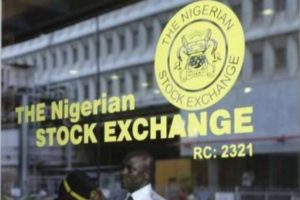Economy
Anxiety Mounts As NSE Commences New Pricing Rule
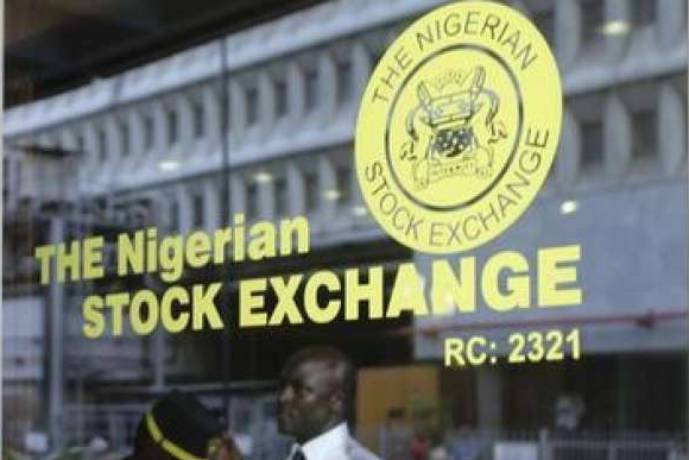
….To Tackle Artificial Valuations
The new pricing rule being introduced by the Nigerian Stock Exchange (NSE) is causing disquiet among capital market operators and other stakeholders as fears heighten over the likely outcome of the regulatory move.
The Nigerian capital market operators have said that the new pricing rule would reduce artificial share prices of companies on the Nigerian Stock Exchange (NSE).
Quoted companies on the main board of the Exchange are currently not allowed to trade below their nominal value or par value of 50 kobo. This had stopped the share prices of the companies at their nominal values.
But the new rules that will come up on January 29, 2018 will remove the stopgap that has supported stocks at their nominal value. The new rules will allow shares of quoted companies to trade for as low as one kobo.
Par value is the nominal value of a share as stated in the Memorandum of Association of the company, while price floor means the amount below which the price of one unit of a share shall not be permitted to trade and the minimum amount which must be paid for a share in the event of a drop in the unit price of that share.
Market operators expressed support for the new rule, which they said is in tandem with the market principle of demand and supply as price-determinant at the stock market.
Also, regulatory documents obtained indicated that the amendments to the pricing technology at the stock market will see a categorisation of quoted companies under three groups with different pricing rules.
The tick size, the minimum price movement by which the price of a trading instrument can change, will also be lowered to as low as one kobo, though all quoted companies shall continue to trade within the current pricing band of 10 per cent maximum allowable change per day.
Under the new groupings and pricing rules, stocks under the first category, Group A, shall consist of large-cap equities that are priced at N100 per share. The second category, Group B, shall consist of medium-priced equities that are priced at N5 per share or above, but less than N100 per share, while the third category, Group C, consist of equities that are priced below N5 per share.
The new rules expectedly link price movements and minimum quantity of equities traded that will change the published price of an equity security.
Stocks under Group A shall have price change with minimum of 10,000 units; stocks under Group B shall have price movement with a minimum of 50,000 units, while stocks under Group C shall have price change with minimum volume of 100,000 units.
The tick size, which is the minimum price movement that any equity shall trade, shall also be linked to the groups. Group A will have a tick size of 10 kobo, Group B, five kobo, while Group C will have a tick size of one kobo. This implies that the share price of each stock shall be allowed to move up or down in multiples of its tick size.
Investigation by LEADERSHIP Weekend revealed that not less than 47 equities will be affected in the new arrangement, cutting across 11 sectors among the 177 listed companies.
Further probe into all the market categories revealed that 19 of the 47 dormant equities are in the insurance sector, while services, communication and technology have eight and four equities respectively. While it may “boost” the nominal value of the equities concerned, it will also contribute to their poor rating in the market.
Speaking on this development, the managing director of HighCap Securities Limited, Mr. David Adnori, said the implication is that all those stocks that were artificial kept at the par value of 50 kobo will now have to find their level. He addes that the price of any stocks in the market will be a correct reflection of the market value for the stock.
He pointed out that the market is an auction market based on supply and demand at any given price and if it is the market price the demand for the stock will go up and will stimulate demand in the securities.
He also noted that the impact on the market capitalization of stocks currently trading below N1 were insignificant, as this will not affect the total market capitalization, even as he said that the market capitalization of those stocks was not up to one-tenth of Dangote Cement total capitalization.
The chief operating officer of InvestData Consulting Limited, Mr. Ambrose Omordion, said that the new rule is a welcome development that will boost trading activities and propel companies’ performance and corporate governance that will support the share price.
He pointed out that on the part of traders and investors, the new classification of A, B and C should guide when taking investment decision.
“This is time investors should beware of penny stocks that can easily move to one kobo” he said, adding however that “Investors with a lot of penny stocks in their portfolio could be among the first to be hit by a sell of”.
He continued: “Stocks between 50 kobo per share and N1 per share could be in the firing line as investors reassess their values. While a stockbroker who spoke under anonymity noted that this development may likely lead to some company reducing the nominal value of their shares to one kobo per share via a scheme of share reconstruction, saying “That way they could escape the wrath of a massive value accretion. Whether that will be possible will depend on the regulation that SEC proposes around this.
On his part, managing director of APT Securities and Funds Limited, Mallam Kurifi Garuba said, “This will be implemented by the end of January 2018. The implications are many but the most important is that it will increase trading of stocks which is lacking now and most of them can go as low as one kobo per share.
Looking at prices of stocks on the NSE showed that there were only nine stocks under the “high-priced stocks” category of Group A. These include Dangote Cement Plc, Mobil Oil Nigeria Plc, Nestle Nigeria Plc, Nigerian Breweries, SIM Capital Fund Skye Shelter Fund, Nigerian Energy Sector Fund (NESF), Total Nigeria and Seplat Petroleum Development Company. (Leadership)
-
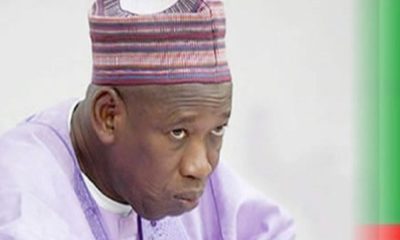
 News4 days ago
News4 days agoAPC National Chairman: Moves To Oust Ganduje Put Presidency In Quandary
-
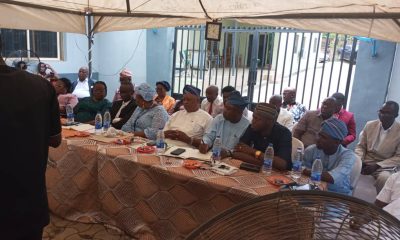
 News3 days ago
News3 days agoOsun RAAMP Opens Bid For Road Constructions Statewide
-

 News5 days ago
News5 days agoComrade Joseph Sangosanya dies at 67
-
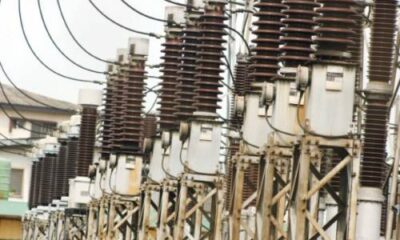
 Opinion3 days ago
Opinion3 days agoRegulatory Commission Must Wakeup From Slumber To Rescue EKEDC From The Shackles Of Dere Otubu By ADAPHAI

